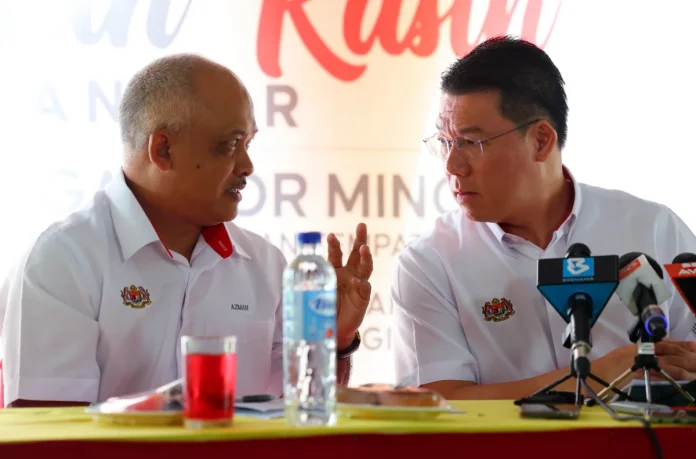PUTRAJAYA: All new applications and licence renewals in Malaysia’s solid waste and public cleansing sector will require mandatory participation in the Solid Waste Management Intellectual Course starting next year.
Housing and Local Government Ministry secretary-general Datuk M. Noor Azman Taib, speaking on behalf of minister Nga Kor Ming, described the course as “a step towards new thinking, new competencies and new standards in the solid waste industry”.
He said the course is central to professionalising a sector that is becoming more complex and is closely linked to the dignity and wellbeing of Malaysians.
“The country’s cleanliness is not created overnight. It is built through commitment, discipline and integrity practised every day.
“The programme would empower sanitation operators as key drivers of industry best practices and elevate the sector to the stature it deserves.”
The announcement comes as illegal dumping continues to rise, with Noor Azman describing the problem as “mushrooming” across village outskirts, open fields, behind shops, riverbanks and areas outside local authority coverage.
From 2014 to this year, authorities carried out 24,003 operations to address illegal dumping.
“This year alone, up to October, 3,634 operations were conducted, clearing 1,530.41 tonnes of solid waste at a cost exceeding RM406,000.”
The course forms part of the ministry’s wider effort to professionalise the sector under the National Solid Waste Policy and the 13th Malaysia Plan.
According to Noor Azman, the National Solid Waste Management Department, SWCorp and I-KPKT (Housing and Local Government Training Institute) are working together under a “Trio Model” to strengthen industry standards, performance and human capital development.
The department is tasked with enhancing the quality, effectiveness and capability of solid waste and public cleansing management, while SWCorp focuses on improving licence holder performance and creating a more organised, efficient and competitive system. I-KPKT is strengthening human capital development.
Noor Azman said 5,288 companies have been licensed under the Solid Waste and Public Cleansing Management Act 2007 for waste collection spanning six categories. They comprise household waste, commercial, industrial and institutional waste, construction waste, public cleansing services, long-distance transportation and solid waste management facilities, each requiring strong technical knowledge and strict compliance.
“As an industry reference standard, the course is a comprehensive training programme covering five core modules.
“These consist of the background of solid waste management, legislation, technical basics, licensing application procedures via the i-Lesen system and best practices for licence holders.”
He said the course ensures licence holders meet a level of professionalism aligned with the country’s future needs.
Noor Azman said the course is expected to train 20,000 participants in its first five years, equipping each with technical skills, a renewed culture, discipline and awareness.
“Let us strengthen this sector as a national cornerstone and honour our sanitation heroes by elevating the industry to its rightful stature.”








